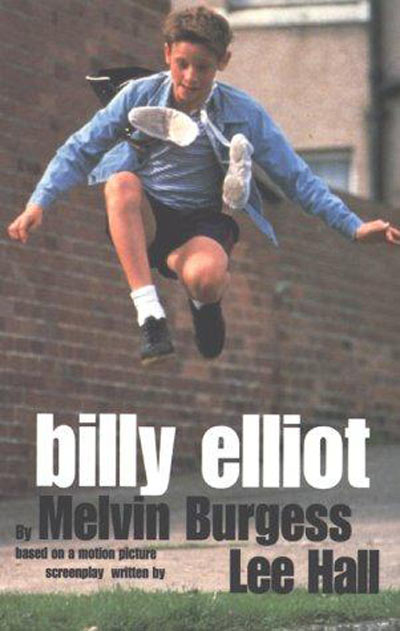Authors note
This is a new one for me – a novelisation of a film. Publishers The Chicken House got in touch with me at the beginning of December and asked me if I wanted to do it. I went to see the film and like a lot of other people, thought it was a cracker.
The time scale was very rushed – the Chicken’s wanted the book out to coincide with the release of the video in April. I had my daughter coming to visit me over Christmas, so I decided that I had to get the first draft done by then – which gave me just four weeks. That was the aim, anyhow, but I had no idea if I could do it. In the event, I did it three weeks – an amazingly fast piece of writing, and something I normally would never try to do. But in this case, such a lot of the job had been done for me – the characters, the story, the setting, even the sequencing of scenes – it was all there. I had the screenplay in front of me – all I had to do was translate the story into prose. But … what was the point? If that was all there was to it, I might as well be writing a treatment for Lee’s film. What can a novel add to this story that a film could not?
I decided early on to use the multiple first person narrative that I used in Junk and Bloodtide, and the answer to the purpose of doing the book soon came. A novel can take up the inner lives of the characters – show you their thoughts and feelings, explain and make clear their motives. A film shows you what people do; everything is inferred from words and action. But a novel can open them up from the inside out. It can also provide a more detailed history. For example – what happened to Billy’s mother? When did she die, how long has she been gone? How did Billy remember her?
The work went well – it’s a tribute to how well-thought out the screenplay was. There were no holes to fall through, not loose ends to tie up, no failings in the characters that I came up against. Only one thing puzzled me – I didn’t;t see that Jackie Elliot, a solid union man, should be prepared to break this important strike, which had cost so much suffering and pain, for the sake of Billy’s ballet ambitions. I tried leaving it out, but the strike breaking seemed such an important part of the film it seemed unfair to filmgoers. After all, it wasn’t my story.
I managed to get hold of Lee Hall’s e-mail in Hollywood to talk about the problem. He wrote very passionately and informatively about the story, and described certain scenes that had ended up on the cuttingroom floor – notably how dad first of all tried to pawn his wife’s jewelry before he broke the strike not after, and how Gary, the strikebreaker, helped out in the end. I saw how Jackie was truly at the end of his tether and having some sort of a breakdown – that made it understandable to me.
Billy Elliot is so interesting because it is about men and boys, about being male in a very traditional male, work dominating society at a time when the world was changing. We see Jackie, the traditional male head of the household, coming to terms with having to care for his children with no wife to help him; wesee brother Tony fighting for his future; we see Michael coming to terms with his sexuality and Billy, pursuing a dream totally at odds with the traditions he grew up with. It was to preserve this exploration of male roles that I left out the voice of Billy’s dance teacher, Mrs Wilkinson, and it that which I think makes it worth turning into a book.
